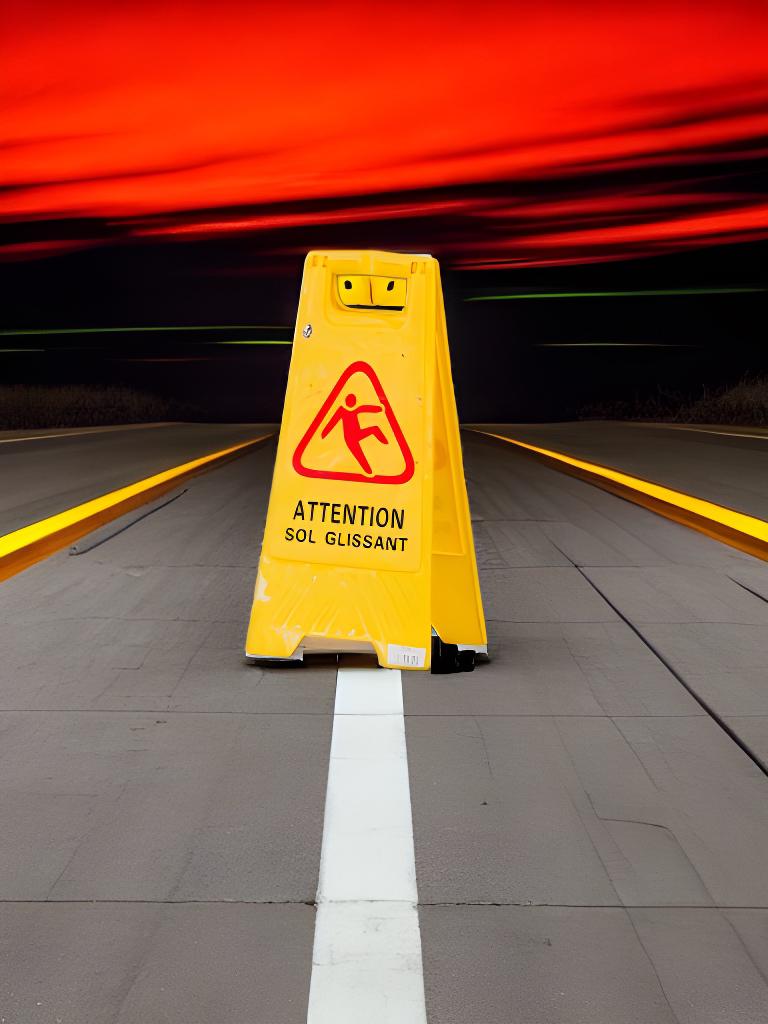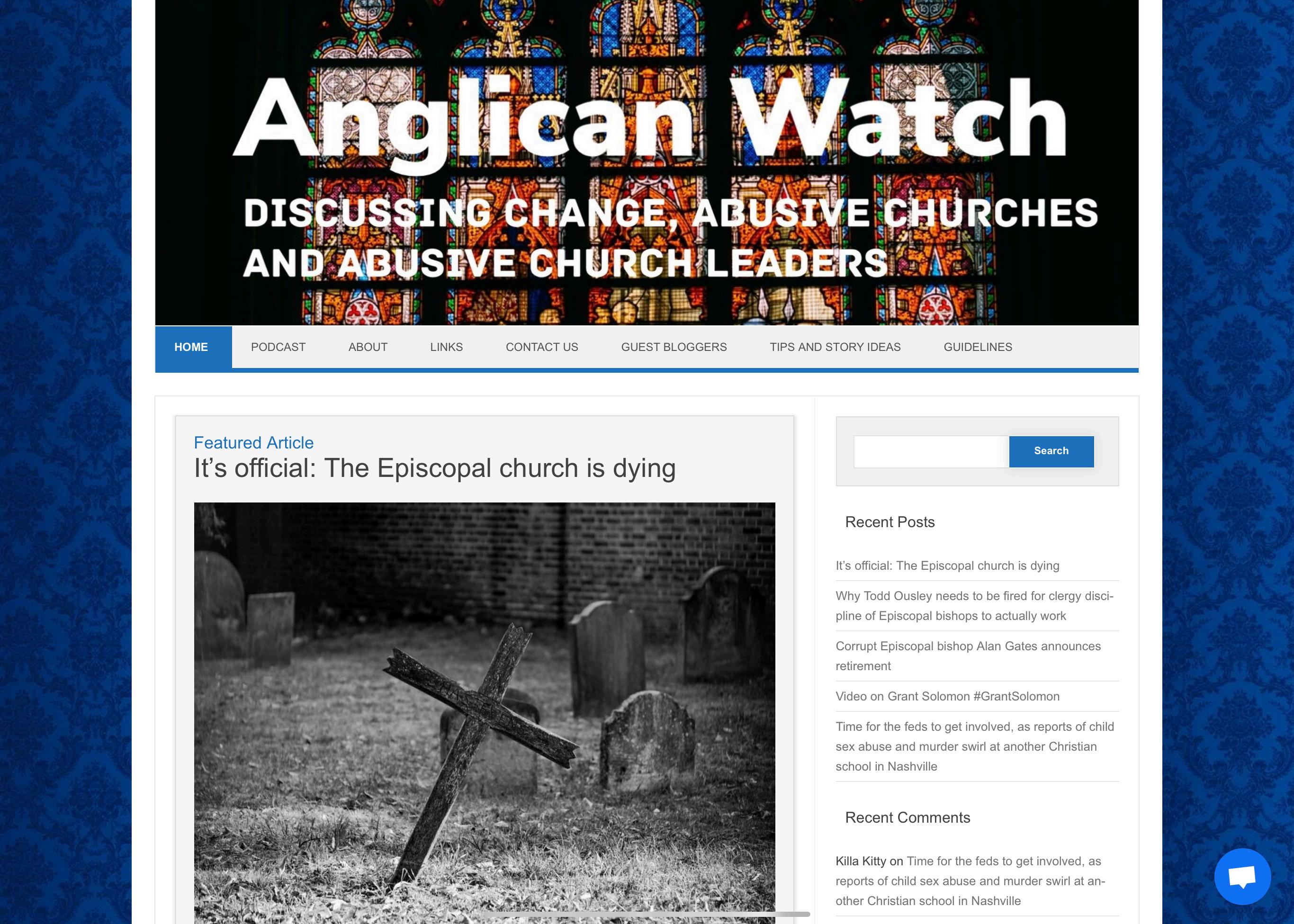TITLE IV


A USERS GUIDE TO CLERGY DISCIPLINE IN THE EPISCOPAL CHURCH
















• This presentation is intended to help victims of clergy misconduct navigate Title IV
• Title IV is the part of national church canons that provide structure and requirements for clergy discipline

• This presentation does not offer legal advice. It does not take the place of the advice of an attorney
• If you are a victim of criminal conduct, or think you may be, you should go to law enforcement officials IMMEDIATELY. Do not go to the church first.
• If you believe your situation may result in a lawsuit, talk with an attorney before you say anything to anyone. Things you say may come back later and cause problems for you

• This presentation is a high-level overview and leaves out tons of stuff. When it doubt, check it out!







• Title IV is the Episcopal church canon that addresses clergy discipline
• Standards of conduct
• Policies
• Procedures
• All dioceses are required to adopt implementing canons


• With one exception (sexual harassment), Title IV only covers misconduct by clergy

• For conduct to be covered by Title IV, it must meet a three-part test:

• It must be an offense under the canons. AND
• Material (which means that it is important, relates to substance not merely form, and goes to the merit or essence) AND

• “substantial or of clear and weighty importance to the ministry of the church.”

• Does the three-part test sound vague?



• It is!
• Be aware that unethical bishops and intake officers often misuse these standards
• Example: Declaring that allegations of criminal conduct by clergy are not “of weighty and material importance to the ministry of the church.” Scarrrrry! But true.
• We’ll talk later about how to discourage these sorts of fun and games.


SHOULD:
Maintain confidentiality
Safeguard property and funds of the church

Conform to the canons of The Episcopal Church and the rubrics of the Book of Common Prayer
Abide by ordination vows
Obtain consent of the bishop before engaging in secular employment
Obtain consent of the bishop to be absent from the diocese for more than two years


• Engage in sexual misconduct (includes sexual behavior with: a member of the congregation; employee; volunteer; person in high school; person under 18 years of age; person legally incompetent; someone with whom the clergy has ever had a pastoral relationship)
• Hold or teach any doctrine contrary to that held by The Episcopal Church
• Commit criminal acts
• Engage in dishonesty, fraud, deceit, or misrepresentation
• Habitually neglect public worship, Holy Communion
• Engage in any conduct unbecoming a member of the clergy
• Retaliate for filing a complaint or opposing conduct illegal under church canons


• Think carefully. Although many dioceses say they will listen with respect and caring, the opposite often is true.
• You may be ignored
• You may be blamed for the situation
• You may face retaliation. It’s more common than not. And yes, the canons say this is forbidden.


• Many complainants do not get the pastoral response promised by canons
• Many of the most abusive priests are master liars and con artists
• Many dioceses ignore the requirements of Title IV.
• The process can be decidedly amateur-hour
• Many dioceses make up “rules” on the fly
• If it doesn’t involve children, sex, drugs or money, it’s a long shot. Even if it does, odds are mixed.
• In the best of circumstances, it’s a long, long process


• Can you deal with additional trauma?
• Are you better off simply transferring to a new church?
• Recognize that there’s little recourse if your bishop sandbags your case. In theory, the national church is your next step, but the Office of Pastoral Development is a sinkhole of spiritual abuse, indifference, and cover-up. Don’t say we didn’t warn you!

• Get the lay of the land:
• Have others in your diocese had a good experience?
• Have prior cases been handled with integrity?


• Consider contacting your diocesan intake officer and asking questions:
• Can I be appointed an advisor from the start?

• Is what I tell you confidential?
• Will you provide a pastoral response? How is that different from pastoral care? (If the intake officer tells you they are one and the same, proceed with great caution, if at all. They are not the same thing!)
• Will you keep me updated? If so, how often?
• The intake officer is the person appointed to take reports of clergy misconduct in your diocese
• Most dioceses post this information on their web page
• If you can’t find the information on the diocesan website, try calling the diocese and asking who the intake officers are
• In some circumstances, you may be more comfortable with an intake officer of the same gender, or who shares other attributes with you (LGBTQ+, speaks Spanish, etc.). If that’s the case, and there’s no intake officer in the diocese who meets these criteria, you can ask the bishop diocesan to find another clergyperson to take your report



• At intake and only at intake, the matter complained of is assumed to be true for purposes of the three-part test we mentioned earlier

• Complaints can be made in any form, by anyone, and can be anonymous. (Don’t let the diocese tell you otherwise!)
• The intake officer is supposed to listen with care and respect
• He or she then prepares an intake report describing the allegations
• He or she DOES not conduct an investigation, except to understand the matter complained of. Be wary of this — many intake officers will overstep their canonical role

• Many times, intake officers will provide you a copy of the intake report. It makes sense to ask if you can get a copy. If the answer is yes, you may be able to help clarify gaps or unclear information. If the answer is no, there’s no harm to you. So ask!

• Once the intake officer’s report is drafted, it goes to a reference panel.

• The reference panel includes the intake officer, the bishop, and a member of the disciplinary committee.
• The reference panel is responsible for deciding what to do next:

• Take no action other than to provide a pastoral response
• Refer the matter for investigation
• Refer the matter for negotiation of an accord between the bishop and the respondent aka the Bad Guy (or Lady)
• Refer the matter to a conference panel, where there is a conversation about ways to resolve your concerns
• Refer the matter to a hearing panel. This is the big dog — lawyers, pleadings, discovery, the whole nine yards. Things typically don’t go to hearing panel unless the respondent is a real turd. Why? Because hearing panels are public — it’s all out in the open! And they are expensive

• If the matter is referred for a pastoral response, you have a right to appeal to your diocesan disciplinary committee, BUT



• In a well-run diocese, a lot gets resolved behind the scenes without going further. The bishop can issue a pastoral directive that tells the Bad Guy to stop whatever he or she is doing. Or to start doing something, like showing up on Sundays.
• In a badly run diocese, or at the national church level, there typically is no pastoral response. In that case, an appeal to the disciplinary committee is unlikely to succeed, as members are usually insiders and buddies with the bishop.


• ONCE THE MATTER HAS BEEN SENT OUT, IT COMES BACK TO THE REFERENCE PANEL AS NEEDED. FROM THERE, THE PANEL AGAIN DECIDES WHERE TO SEND IT NEXT
• AND AROUND AND AROUND IT GOES, UNTIL THERE IS RESOLUTION


POINTERS, TIPS, LESSONS LEARNED AND SNARKY COMMENTS

• Did you get the idea we’re not big fans of Title IV? If so, you’re right. It’s great on paper, horrible in practice
• Some dioceses are much better than others at following Title IV
• Good dioceses:


• Connecticut
• District of Columbia
• The worst of the worst:
• National church offices aka Office of Pastoral Development. All Hope Abandon, Ye Who Enter Here!
• Virginia (possibly changing in 2023. We’ll see.)
• Massachusetts
• Dallas
• Alabama

• IT’S NOT UNUSUAL TO HAVE BISHOPS WHO HAVE A CONFLICT OF INTEREST BRING IN SOMEONE FROM THE OUTSIDE. HERE’S A LIST OF ONES TO AVOID:

• SHANNON JOHNSTON (A CROSS BETWEEN LIZZIE BORDEN, BERNIE MADOFF, AND ATTILA THE HUN. ON HIS BETTER DAYS.)
• SUSAN GOFF
• ALAN GATES
• GEORGE SUMNER
• TODD OUSLEY (THINK, “I CAN ALWAYS CHANGE MY NAME AND ENTER A WITNESS PROTECTION PROGRAM.”)
• CHILTON KNUDSEN. PROOF YOU CAN BE A BISHOP AND HAVE ZERO ETHICS.

• NO ROGUE’S GALLERY WOULD BE COMPLETE WITHOUT A LIST OF INCOMPETENT AND UNETHICAL INTAKE OFFICERS. THIS LIST IS FAR FROM COMPLETE, BUT IT’S A START.
• COUNT DRACULA (JUST KIDDING, BUT HE IS RUMORED TO BE RELATED TO SEVERAL FOLKS ON THIS LIST)

• SVEN VANBAARS

• CAROLINE PARKINSON
• ROB MORPETH AKA DELTA DAWN’S DAD
• ANYONE IN THE DIOCESE OF DALLAS


• It’s not unusual to have bishops who have a conflict of interest bring in someone from the outside. Check out our list of ones to avoid

• Remember that the intake officer and bishop are people too. If you can meet with them face-toface, it helps them put a face with the name and size you up
• If the diocese tries to play the sin-leveling game, politely call it out. That’s when you hear some variation of, “Well, you did ______. “ Nice try, folks. Title IV only applies to clergy.
• If there is background that would be helpful, share it. For instance, knowing you have PTSD may help the bishop understand why you look uncomfortable. Or you may have Aunt Irma, who’s batsnot cray and hasn’t helped matters any. Share that.
• When you file your complaint, consider doing it in writing. That way, the intake officer is less likely to focus on the fact that the Bad Guy took your parking space, and instead focus on the $1.2 million he embezzled. Yeah, it happens.


• Have someone read your complaint. You’ve lived the experience, so stuff you take for granted may not be obvious to others.
• Cite the canons. Don’t leave it to chance. Yes, the intake officer is supposed to know this stuff, but it’s rare to bump into one who’s really proficient. You’re better off if you can cite chapter and verse.
• Be ready with details. Many abusive clergy are good at micro -aggressions, which taken individually seem innocent. But taken as a pattern, these actions may be profoundly abusive. Be prepared to show how things tie together.
• Remember there’s safety in numbers. If others have also had the same experience, you may be better off bringing in reinforcements from the start.

• Remember that the bishop has an inherent conflict of interest. On the one hand, she’s responsible for providing pastoral care to your priest. On the other, she’s the disciplinarian. Not all bishops are good at separating the two, so try to ask yourself, “How might the bishop see this?”
• Recognize there’s an inherent imbalance of power. The priest or bishop is always going to be in the more powerful position.



• Know that others may have a deep and irrational appreciation for the Bad Guy. He baptized the ankle-biters, married people, commiserated when they got divorced, and buried granddad. And he sits at the heart of their faith. So you face an uphill battle.
• Relatedly, the old saying, “If it’s inconceivable, it’s imperceivable,” is wicked true. You may have 1000 pages of written documentation that the Bad Guy plundered and looted all of Europe, then lied about it in writing, under oath, but there will still be dolts and dullards who say, “But he didn’t DO ANYTHING.” It’s not fair, but that’s how people roll.
• Consider getting pastoral support before you plunge in. Maybe an ELCA pastor, the friendly rabbi down the street, or a licensed pastoral care provider. A badly handled Title IV complaint can be devastating.


• Some situations still don’t get the respect they deserve:
• Spiritual abuse often gets the big yawn, even though it can be every bit as traumatic as sexual abuse
• #metoo situations are almost always handled poorly. That shouldn’t be the case in this day and age, but it’s sadly true
• Although the church talks a good game when it comes to sexuality and gender, minority persons still experience profoundly elevated levels of misconduct. We see little sign that the church knows how to deal with these issues — which comes as no surprise, since it’s only now dealing, maybe, with slavery and race
• Transgender persons consistently report discrimination in the church. And the canons say one thing, but at the end of the day, something totally different plays out in real life


• Remember you can have any advisor you want. That person may be an attorney, a trusted friend, a clergyperson, or someone with expertise in Title IV. And you can have more than one.

• Take a look at the CPG clergyfinder to identify the Bad Guy’s canonical residency. It may or may not be diocese where he works. In most cases, the diocese where he’s canonically resident is where you want to file your complaint. But if you have a dirtbag bishop when it comes to clergy discipline, you can also file where the misconduct occurred. If it makes sense to do that, go for it, and let the bishops involved duke it out.
• Worst case scenario: Title IV complaints are only preclusive if there has been an accord or the matter has been heard by a hearing panel. So if you’ve been dismissed, you can keep at it, until the statute of limitations in the canons runs (2 years for some things, 10 years for most things, no statute of limitation for two things — sexual abuse of a child or violence).


• Remember that Title IV only applies to clergy. So if the intake officer “directs” you to do something, you’re under no obligation.
• Despite what Title IV says about confidentiality, you are free to share your experiences; it’s inherently abusive to tell you otherwise, and Title IV only applies to clergy. But make an informed decision — sharing the fact you filed a complaint likely will make you persona non grata in your parish, and possibly other parishes. Not very Christian, but as the late bishop Barbara Harris put it, “No one hates like Christians.” Yup.
• Think twice before signing a non-disclosure agreement. A Christians, we’re called to bring light to the darkness. But this little light of mine ain’t shining nowhere once you’ve signed an NDA. And NDA’s are hugely one-sided—unless you have asked for one, chances are the goal is to sweep things under the rug and protect the church’s reputation. Hmmm.



• The national church publishes a useful site at TitleIV.org. But be careful about some of the video vignettes—one of the worst offenders out there when it comes to Title IV is Todd Ousley, yet he dishes out loads of empty Jesus-babble on the website.
• The Diocese of Connecticut (ECCT) is probably the best in the denomination when it comes to Title IV and offers a wide array of materials on its website. Visit https://www.episcopalct.org /safechurch/.
• Check out ECCT’s written training materials, found at the URL above.

• The Very Rev. Canon Robin Hammeal-Urban, also with ECCT, is an excellent resource and often willing to answer questions. Contact her through the diocese/
• Robin has published an excellent book, well worth reading. It’s Wholeness After Betrayal, Restoring Trust in the Wake of Misconduct. Find it on Amazon.
• Anglican Watch team members are available on a pro-bono, as-available basis to answer questions about Title IV and provide other support and assistance to victims.

• Depending on your situation, other resources may offer varying paths to resolution. These include:


• Law enforcement, which should be your first stop if your situation involves potential criminal activity. If you go this route, do not approach church officials or discuss the matter with others without asking law enforcement first, for fear of disrupting a potential investigation.
• A civil lawsuit, which may cover a wide variety of issues. Additionally, an attorney may be able to assist with a criminal referral. As with law enforcement, do not discuss the matter with others without clearing it with your attorney. Doing so could jeopardize your case.
• Media coverage. Many a Title IV case, previously deemed not “of weighty and material importance to the ministry of the church,” suddenly became important once the media became involved. Traditional media — TV and radio stations, newspapers, etc., typically are a tough pitch. Religion just doesn’t get the attention it used to. But if it’s big enough, or it involves sex, it may be sexy enough to get coverage.



• If traditional media isn’t interested, or they are but you want to double your firepower, consider blogs and podcasts. In addition to Anglican Watch, there are many players in this space. And many bloggers work collaboratively, so landing in one may get you coverage in multiple fora.
• Social media works wonders. If there’s one thing about Christians, they hate controversy. Ramp up your visibility on Twitter, Instagram, TikTok and SnapChat, and you’ll quickly get attention.
• Speaking of controversy, there’s always picketing. Not everyone is open to this approach, and you’d be surprised how many Episcopalians will leave church and give you the one -gun salute as they blast out of the parking lot. Not to mention pretending there’s no such thing as the First Amendment and calling the police, or heaving bottles at you, swerving their vehicles at you (assault and battery, anyone?), or lying to police and claiming that you threatened them. But if you have a titanium spine, nothing cuts into church dynamics like protestors outside, especially on Christmas and Easter.


• If you’ve decided to protest, consider wearing a body cam like a Go-Pro. Or have a friend record you from a nearby car. Not only does it remove all doubt as to what transpired, but the videos of the Senior Warden doing the one-gun-salute-to-Jesus make GREAT video content. Even better if you can include her license plate in the image, so she can’t say it wasn’t her. Just sayin’.
• If folks are threatening you with violence, consider asking for a police presence. Many municipalities will do it for free, or charge a nominal amount. But more than one church leader has decided to climb back into the Caddy, versus getting into a fistfight, after realizing there’s a cop 20 feet away.

And a police presence may prevent the Bad Guy from coming out in vestments and threatening you. Yes, it happens. Plus, the presence of law enforcement confers a certain gravitas.
• If you get nasty behavior from parishioners, it’s usually best to take the high ground. As in pretending to be your great Aunt Matilda, at age 93, “Why you’re so sweet, bless your heart!”
• Some protesters do well with over-the-top comebacks that would make a sailor blush. But we live in a day and age where gun violence is endemic, so we advise not going that route.


• NO MATTER WHAT PATH YOU TAKE, BE PREPARED FOR CLERGY GOSSIP AND FABRICATIONS. IT’S JUST PART AND PARCEL OF DEALING WITH A CLERGY BULLY.
• FINALLY, THERE ARE A FEW CLERGY, TYPICALLY NARCISSISTS AND SOCIOPATHS, WHO ARE TRULY SCARY ONCE YOU PEEL BACK THE SMILES, HUGS, AND OTHER TRAPPINGS OF “CHURCHY NICE.” ALWAYS KEEP YOUR SAFETY IN MIND. AND IF YOU HAVE ANY DOUBTS AT ALL ABOUT THE INTEGRITY OF A CLERGYPERSON, NEVER HAVE A CONVERSATION ALONE WITH THAT PERSON. YOU DON’T WANT TO GIVE THEM ROOM FOR LATER FABRICATIONS.


